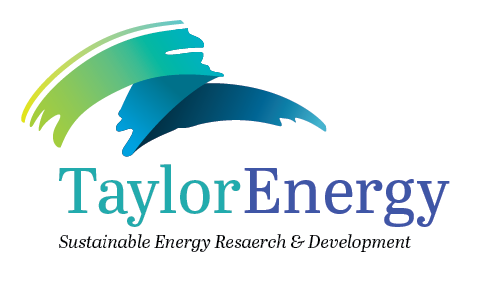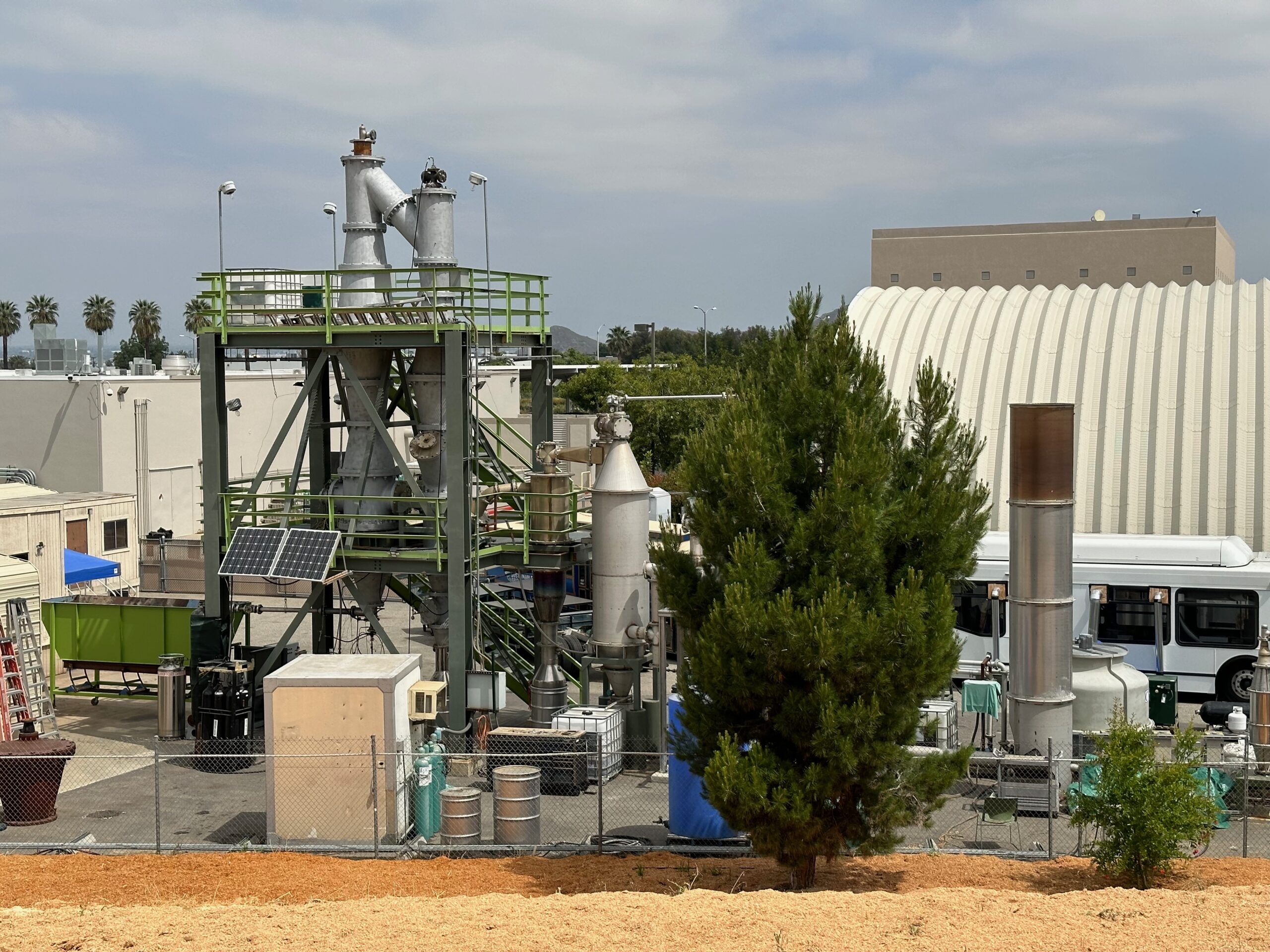Taylor Energy and UCR have been collaborating on the development of thermo-catalytic conversion technology since 2014, having completed several projects for the State of California under direction of the Energy Commission. UCR continues to serve as a major subcontractor for our biomass projects, studying conversion methods that can achieve carbon negative status using separated biomass feeds for production of bio-crude liquids, carbon products, fuel-gases, and high-purity hydrogen gas.
The thermo-catalytic gasification facility is permitted and fully operational to perform pilot scale R&D, testing, and process demonstrations. The facilities and infrastructure have been designed and constructed to advance biomass conversion using state-of-the-art methods. The test facilities include 40-amp-3-phase-460-volt electrical service, potable water, evaporative cooling water, and storm water runoff control system. The gasification tower, the syngas-quench, hot cyclones, and gas scrubbing system(s) are part of the process train used to test advance thermo-catalytic conversion methods. Resources available to the research team collaborating UCR, at the Center for Environmental Research and Technology (CE-CERT) include offices, support facilities, i.e., industrial gases, pick-up and delivery of cryogenic liquids, metal fabrication, welding, drilling, and cutting equipment, a forklift, a loading dock, and an enclosed syngas flare. The test site is located next to the train tracks in a light industrial setting.
Most recently, Taylor Energy’s pulse detonation enhanced gasification methodology has been validated by both thermochemical modeling and experimental work performed by Dr. Serge M. Frolov, whose team at the Federal Research Center for Chemical Physics, Russian Academy of Sciences, has studied state-of-the-art reforming methods that use supersonic shockwaves to react H2O & CO2 with organic wastes for conversion of negative-value feedstocks into low-molecular weight gases, including H2, CO, CH4, CO2, & H2O. Comparing our experimental results with UC Riverside’s Aspen model for gasification is a significant verification method that helps elucidate key parameters that impact the thermo-catalytic conversion process. We also use a techno-economic model developed by Black & Veatch to evaluate economic performance of biomass gasification systems.



